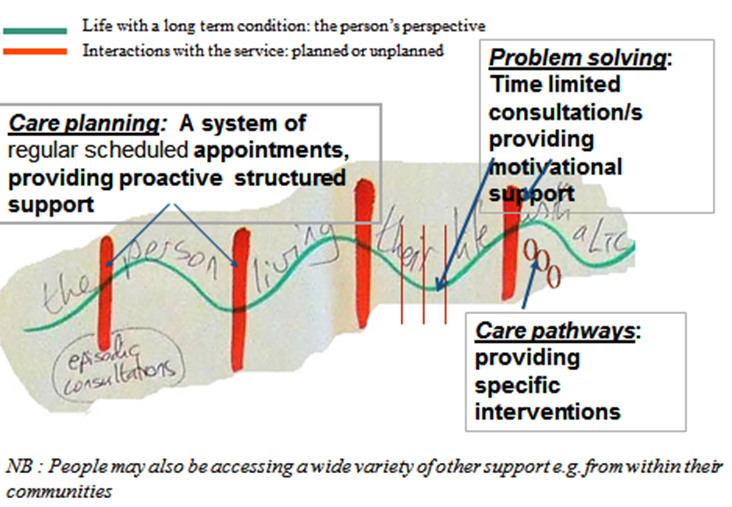Self-management
Various “self-management” techniques have been shown to be effective in living better with an ongoing health condition:
- Increasing self-efficacy – knowing when you aren’t well and what to do
- Improving compliance with medication regimens – what medication you are on and why you need them
- Decreasing pain – knowing what works for you
- Improving health status – health, wellbeing and fitness.
Why is supported self-management important?
The greatest challenge for the NHS is no longer treating acute conditions.
What is the greatest challenge now?
The greatest challenge now is enabling the nearly 1 in 3 people who have a long-term condition to live healthier and longer lives without constant interruption to your life with hospital visits and stays.
If that is the challenge, what is the reality?
The reality is that people who live with a long-term condition spend very few hours in contact with health services.
- Some of those hours are for routine tests and appointments; many are for crisis interventions.
- Treating their long-term condition demands a different sort of health service, one in which the primary function is to support people to self-manage.
Can the crisis be avoided and can hospital stays be reduced?
There is a growing appreciation in health services that when people with a long-term condition are actively engaged in their own care, this has a significant impact on:
- improving outcomes
- improving quality of their lives.
This picture was drawn by people living with a long-term condition, who are supported by some clinicians.
It really does capture this reality nicely:



